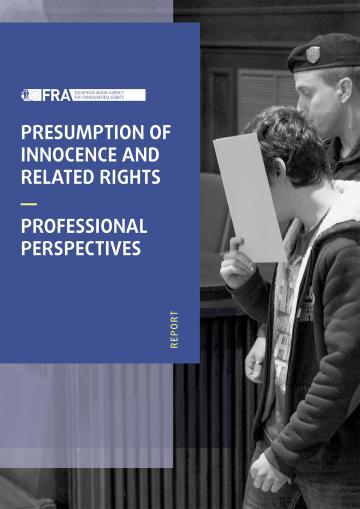By taking a closer look at this reality, the findings presented support transparency about how fundamental rights are dealt with in practice across the EU. In so doing, they can encourage both better rights protection and stronger cooperation in criminal matters among Member States.
It is a principle so basic that most can recite it with ease: you are presumed innocent until proven guilty in a court. But our research underscores that truly ensuring this and related rights is far from simple.
Article 48 of the EU Charter of Fundamental Rights guarantees the presumption of innocence in criminal proceedings, as well as respect for related defence rights. Directive (EU) 2016/343 – on strengthening certain aspects of the presumption and of the right to be present at trial – spells these out in more detail. This report presents the agency’s findings on how select EU Member States implement them in practice.
The report is based on interviews with over 120 defence lawyers, judges, prosecutors, police officers and journalists in nine countries, covering broad ground in terms of both geography and legal traditions. They show that practical implementation varies – and underline that the presumption of innocence can be undermined in myriad ways.
In this report:
- Key findings and FRA opinions
- Presumption of innocence in general
- Legal overview
- Public references to guilt
- Legal overview
- Findings: National laws and professionals' perspectives on issuing public statements in criminal cases
- Burden of proof
- Legal overview
- Findings: National laws and professionals' perspectives on the burden of proof in practice
- Rights to remain silent and not to incriminate oneself
- Legal overview
- Findings: National laws and professionals' perspectives on how the right to remain silent is respected in practice
- Right to be present at trial and right to a new trial
- Legal overview
- Findings: National laws and professionals' perspectives on presence at trial in practice











